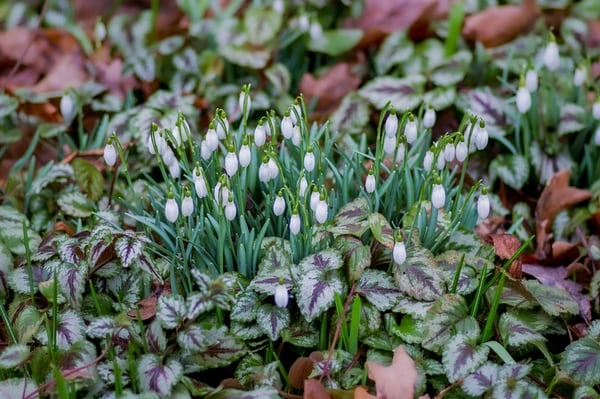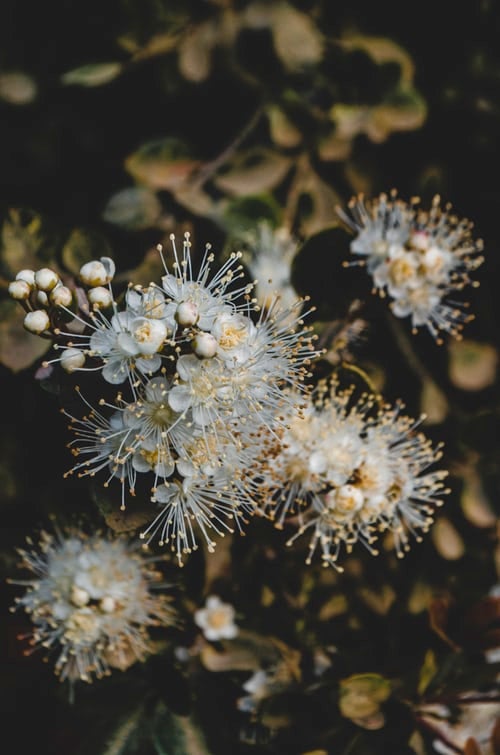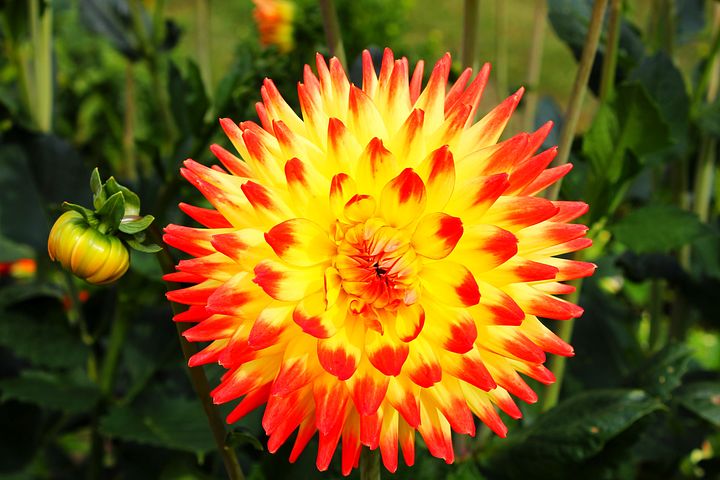5/31/2024
I have spent many years working with people with substance use disorders, including individuals with opioid use disorder. I am continuously amazed by the resilience of people who are in recovery. Many can point to the events or circumstances that led them to stop using drugs. It may have been the threat of losing their job, or getting arrested and sent to jail where they could not get drugs, or they may have gotten placed in a monitoring program where not losing their job or not going to jail was contingent on not using drugs. Fortunately, once they decide to stop, there are medications available to treat opioid use disorder that can dramatically increase the likelihood that people will not use these drugs, and that can also decrease their risk of dying of an overdose by 40 to 50%. Over the past three years, over 100,000 people a year have died of drug overdoses, most of these due to opioids. This is more than died due to motor vehicle accidents and gun violence combined. When an individual stops using illicit opioids, they have to learn how to live without these drugs, which can be very challenging. Often, their predominant way of dealing with difficulty in the past was to use drugs. When they stop using them, they have to find new ways of coping. Those who are successful frequently learn quickly, and often incorporate mindfulness into their daily lives.
5/7/2024
How much can we change as individuals? It is common to hear that “people never change”. Yet change is actually inevitable. As humans, we are changing every moment. Old cells in our bodies are dying, being replaced by new cells. New neural connections are being made in our brains, and old ones may be pruned. This changing architecture and function of our brains is referred to as neuroplasticity and underlies many of the longer-term effects of meditation. As we intentionally direct our attention, new neural connections are made, and as we let go of certain thoughts, related neural connections decrease. These structural changes in the brain can be demonstrated using magnetic resonance imaging after only a few months of meditation. Despite this demonstrated capacity to change, we often still hold on to certain images of ourselves that we feel define us.
3/19/2024
March Madness, as the NCAA basketball tournaments are frequently referred to, is here again. The fields have been chosen, and a favorite team may have been selected or not, leading some of us to feel either happiness or disappointment. Now, over the next three weeks, many people will be focused on their brackets and their favorite teams, perhaps to a state of madness. Madness has a number of definitions according to dictionary.com, at least two of which might apply now. The first is intense excitement or enthusiasm. This is how many people feel during the tournaments, especially watching their favorite team, or a team that is important to their bracket. Another definition is senseless folly. This might be how people who have no interest in basketball view the whole affair. However we view March Madness, as is the case for anything that elicits strong emotions, it can be an instructive time to pay attention to our present moment experience. If we really get caught up in the tournament, we can notice the emotions that arise- happiness or even elation when our favorite team wins, sadness or anger when our team loses.
The Space Between Stimulus And Response
3/4/2024
While driving recently, I was wondering what to write for this month’s Musing when I came to a stop sign. Seeing the red sign with STOP written on it brought my attention back to the present moment. “Aha!” I then thought - I’ll write about STOP, an acronym that reminds us to pause to practice mindfulness in the moment. The importance of pausing is well described in the quote below often attributed to Austrian psychiatrist and holocaust survivor Viktor Frankl, although I have been unable to find a reference to him actually saying it. Instead, according to the Viktor Frankl Institute, “The true origin of the quotation is somewhat involved. To put it shortly, the author Stephen R. Covey used to recount that he found the quote in a library book and thought it fitting to describe Frankl's views - but he did not note down the book's author and title.” Whatever the origin, this is still a very powerful statement: “Between stimulus and response there is a space. In that space is our power to choose our response. In our response lies our growth and our freedom.” Pausing allows us to pay attention to our present moment experience, and in pausing gives us the space to choose our response, rather than just reacting to our circumstances.
1/12/2024
I have been thinking about the importance of perspective recently. As our society becomes more and more polarized, it seems it has become harder and harder to appreciate the perspectives of those who may see the world differently than we do. We all have views on the way things should be that are largely based on our upbringing and other formative experiences. These views are deeply held and we often don’t even recognize that we have them. When someone says or does something that is counter to these core beliefs it often triggers a strong reaction in us. On the other hand, we tend to like when our core beliefs are supported. Social media companies and news organizations recognize this, and thus our feeds are full of reinforcing information that often focuses on the positives of our beliefs and the negatives of other beliefs. This can lead to greater and greater polarization. Yet if we want to solve difficult problems, we often have to not only acknowledge but even understand and appreciate the beliefs and views of others. This can be very hard because we often move from feeling negatively about an action to making negative assumptions about the person doing the acting. Rather than try to understand them, we judge them.
12/22/2023
This time of the year is often associated with joy. According to Dictionary.com, one of the definitions of joy is “the emotion of delight or happiness caused by something exceptionally good or satisfying”. There are often many opportunities to experience joy now- giving and receiving gifts, noticing the sense of wonder that can arise in children, feeling our own sense of wonder, perhaps in relation to our religious traditions. Last weekend I participated with some of my family and 5000 or so others in the Tacky Light Run in Midlothian, a four-mile run/walk through neighborhoods with houses decorated for the holidays in a variety of often extravagant ways. I experienced joy in spending the time with my family, in seeing the decorations myself, and in watching others’ reactions to them. As with many positive emotions, joy can be missed or overlooked in the context of ongoing negative events. We may be caught up in worrying about these events, which can range from global to personal.
12/1/2023
Thanksgiving is a wonderful opportunity to practice mindfulness. The day is devoted to giving thanks, and we can pay attention to all of the things for which we can be thankful: family, friends, food, activities. We can Intentionally notice our experience as it arises, becoming aware of being in relationship with others, and really paying attention to what we are eating, drinking, and doing. Thanksgiving is also an opportunity to notice when we wish things were different than they are. We might find getting to wherever we are planning to go challenging. We might be spending time alone when we would prefer to be with others, or we might be with people we find difficult. Our favorite sports team might lose. When faced with these moments, we can see if it’s possible to just be with things as they are, noticing what we are feeling without judgement. We can notice the thoughts that arise and recognize the choice we have in getting caught up in them, which may only serve to amplify our suffering, or in letting them go. This doesn’t mean we have to passively accept our situation, but rather to observe it so that we can choose the most skillful response.
Capturing Moments of Mindfulness
11/9/2023
I was giving a talk on mindfulness recently and someone in the audience noted they had tried to meditate for 10 minutes and when they finished, their email inbox had filled up with work messages they had to attend to. They implied this made it seem that the time they had spent meditating had a higher cost than benefit. This situation applies to many of us when we try to find the time to practice mindfulness. How do we find the time to practice when we have busy schedules and seemingly more to do than there is time to do it all? Even though our lives are very busy and it seems that there is no time for meditation, often there is if we really have the intention to practice. When practicing, any time spent intentionally paying attention to our present moment experience is beneficial, and more time is better. Just like with exercising, if we want to make it a regular part of our lives we have to make the commitment to do it, set aside the time, and then do it regularly. Often this works best if we have a schedule and a time carved out every day, perhaps half an hour every morning after we get up. This is my favorite time to meditate. If half an hour is too long, we might try 15 minutes. If it’s only 15 minutes, we might even get up 15 minutes earlier to do it. Ideally, we will set an intention for how much we will meditate, decide when we will do it, and then practice every day.
9/14/2023
We all accumulate baggage throughout our lives, much of it stuff we might be happier if we did not continue to carry with us. There are regrets, losses, perceived slights that we hold on to, to name just a few. We often wish things were different regarding these experiences, that we had acted differently or made different choices, that a relationship hadn’t ended, or that someone had acted differently toward us. Yet in this moment, things are just as they are, and wishing they were different will not make them so. “Wanting things to be different than they are” is a basic definition of suffering often used in mindfulness practice. Mindfulness has been defined as “Intentional present moment nonjudgmental awareness with kindness”. So is it possible to just be with our experience as it is, without judgment, noticing any desire for things to be different that arises? There are often little things that we wish were different- the temperature to be cooler, the environment to be quieter, the chair to be more comfortable. And as we pay attention, we may notice that more significant wishes for things to be different also arise. When this happens, we can pay attention, noticing what we feel in the body, what thoughts come up, what emotions are present. We might notice gnawing in the pit of the stomach as thoughts of something mean we said to a friend arise, and become aware that we have been holding on to feeling guilty. Noticing this, we can ask ourselves, is there something I might do that would help the situation, perhaps apologize?
8/31/2023
Many of us hold on to our beliefs about the way things should be even when doing this makes us feel worse. Thoughts arise in our minds justifying our position. I recently watched a movie that brought this home to me. The main character, Jordan, was developing a relationship with a divorced woman whom he really liked. Then he discovers that she is still occasionally seeing her ex-husband. Even though the man’s relationship with her is just beginning, he feels betrayed and he breaks things off, telling himself that he could never be with someone who does this. He then ruminates about how bad his situation is, despite another friend pointing out to him that it was his decision to break things off, and that it is his choice whether to continue to feel slighted and miserable, or to let go of his belief that he could never have a relationship with a woman who continues to see her ex and maybe be happier. The friend tell him “It takes courage to be happy”. Ultimately Jordan recognizes that it is his fear of heartbreak, of being hurt again, that prevents him from pursuing the relationship. He decides to summon the courage to give it another try, rather than deciding it was over before it had even really gotten started. “It takes courage to be happy”. I think this often describes situations we find ourselves in like the one in the movie. Our beliefs about the way things should be affect the ways we see our situations and we can easily get caught up in justifying our reactions










